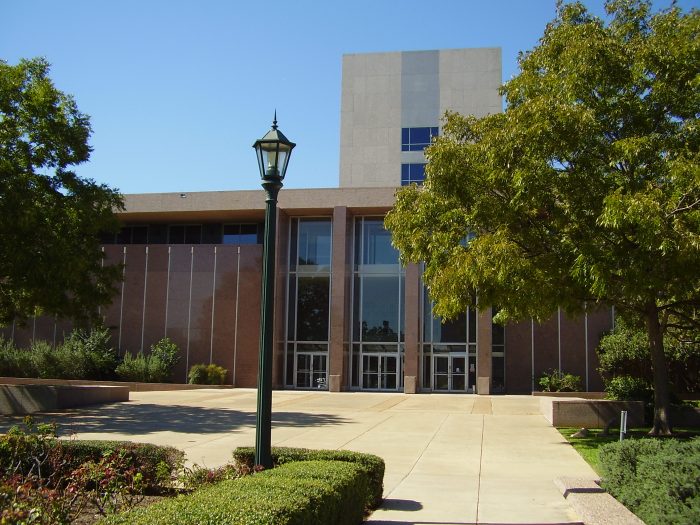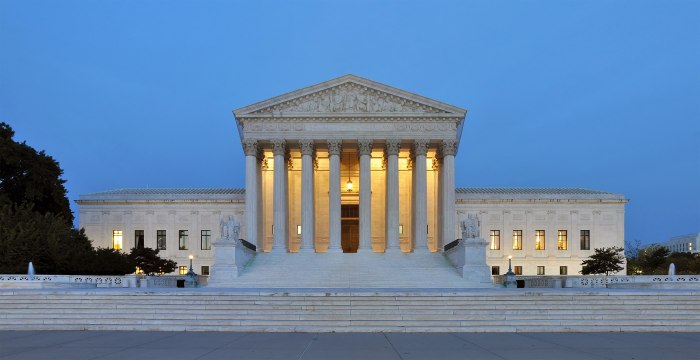The City Council is poised to enact new enforcement tools that can be used against nightclubs and bars, but it also hopes to expand contacts beween nightlife establishments and police and city government in order to make enforcement more fair.
By: DUNCAN OSBORNE | The City Council is poised to enact new enforcement tools that can be used against nightclubs and bars, but it also hopes to expand contacts beween nightlife establishments and police and city government in order to make enforcement more fair.
“We in the Council wanted to come together and come up with recommendations for how we can balance the reality of wanting to support an important part of our economy, but also make…nightlife in the safest city in the world the safest nightlife possible because that isn't the reality today,” said City Council Speaker Christine C. Quinn, a Democrat, at a December 28 press conference.
Quinn, members of the City Council, John Feinblatt, the criminal justice coordinator for Republican Mayor Michael R. Bloomberg, and members of the New York Nightlife Association released a report containing 15 recommendations for addressing nightlife in the city.
Among the recommendations are requiring clubs to have video cameras at entrances and exits, giving police the authority to close clubs where “repeated violent felony assaults have occurred,” and creating monitors for “problem clubs.” Other enforcement steps could include investigating makers and sellers of fake identifications as well as underage people who use them.
The report also suggests creating a working group with the nightlife industry and police as members and establishing a city office for nightlife.
Some recommendations, such as raising the age of admission to clubs and bars from 16 to 18 and allowing the city to enforce State Liquor Authority violations, would require changes in state law.
“The pieces that are Council bills, we can guarantee New Yorkers they will move quickly,” Quinn said. “The pieces of legislation in here that need to be acted on by Albany, we can assure New Yorkers we will be introducing that legislation in January.”
The recommendations resulted from a September 28 meeting Quinn convened with nightclub owners, elected officials, community groups, police, and regulatory agencies.
Concern over security in the city's nightclubs reached a peak this past summer. In July, Jennifer Moore, 18, was killed, allegedly by Draymond Coleman, a drifter with convictions for assault and drug offenses, after a night of partying at the Guest House, a Chelsea nightclub. In May, Stephen Sakai, a bouncer at Opus 22 in Chelsea, allegedly killed one person and wounded three outside the club. Imette St. Guillen, a 24-year-old, was murdered in February, allegedly by Darryl Littlejohn, a bouncer at The Falls, the Soho bar where the young woman was last seen drinking.
There are roughly 10,000 businesses in the city that have liquor licenses, according to E. Charles Hunt, an executive vice president of the New York State Restaurant Association. An estimated 1,100 are nightclubs or bars. The nightlife association, which has roughly 200 members, is a chapter of the restaurant association. Representatives from the nightlife association, who attended the December 28 press conference, generally welcomed the recommendations.
“This is a huge leap forward from our perspective,” said David Rabin, the association's president and owner of Lotus, a nightclub on West 14th Street. “It's the first time… the city government has reached out to us in this manner… We don't agree with everything in the report and some of the stuff we think is great.”
Rabin participated in the September 28 meeting as did Robert S. Bookman, a partner at Pesetsky and Bookman, a law firm, and the counsel for the nightlife association.
“For the first time ever our industry feels that we have partner in government to work our issues with and work out problems with,” Bookman said.
The report did not address calls to the city's 311 phone system or the city's use of its nuisance abatement law.
Some owners have charged that one person can make multiple anonymous complaints about a club or bar to 311. When those complaints are forwarded to a local police precinct, a commanding officer will look at the number of complaints and feel that he or she must respond.
Club and bar owners operating in the 10th Precinct, which includes Chelsea, a neighborhood that Quinn represents, have been particularly sensitive on this point.
The nuisance abatement law allows the city to temporarily close a business after illegal activity, such as drug sales, prostitution, or underage drinking, are observed there. Typically, the city obtains a restraining order after presenting its case to a judge without the business owner present or even knowing that the legal action is pending. The business sees the evidence against it only after it has been closed.
Some business owners have complained that the nuisance abatement law is being misused by the city.
“We need to create this level of trust, that doesn't exist, that hopefully will come out of this working group so that we are certain that nuisance abatement will in fact only be used against bad clubs not clubs that may just have 100 311 calls, one person calling 100 times,” Bookman said following the press conference. “That we have seen in the past.”


































